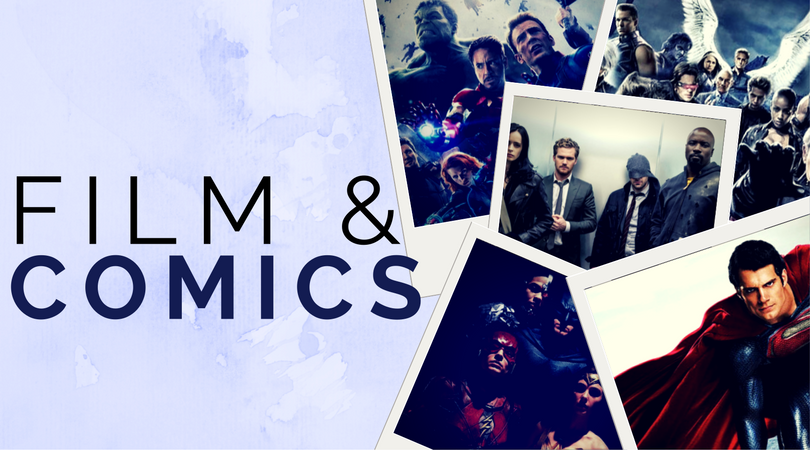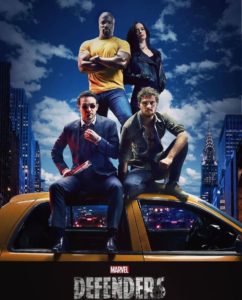
 Comic book adaptations have come a long way in the last twenty years. Superhero flicks are now the standard for summer blockbusters. More comic-based properties are being optioned for film and television adaptations than ever before.
Comic book adaptations have come a long way in the last twenty years. Superhero flicks are now the standard for summer blockbusters. More comic-based properties are being optioned for film and television adaptations than ever before.
Looking back, it seems we’re living in a type of comic book renaissance where we get to see our favorite stories and characters brought to life. What’s even crazier is how consistently high the quality of these adaptations has been, particularly in the last decade or so. Sure DC’s track record hasn’t been great and most fans can agree that both Iron Fist and The Defenders were severely missed opportunities. These examples, thankfully, are very much in the minority. But what exactly makes an adaptation successful versus one that isn’t? Let’s explore a couple of different avenues, with the focus being on film adaptations.
1) Respecting the source material
It goes without saying that comic fans can be a fickle lot. I’m not judging, trust me, I’m guilty of it, too! Taking too many liberties can seriously alienate die-hard fans and potentially ruin a perfectly good story. Take a look at 2006’s disappointing X-Men: The Last Stand, which adapted much of Joss Whedon’s excellent Gifted storyline, while shoehorning in aspects of Chris Claremont’s classic Dark Phoenix Saga. Ultimately the two narratives just didn’t work together and the film suffered for it (along with the fans). However, the opposite is also true: stick too close to the original and all you’re doing is recreating someone else’s work with little to no creativity. Watchmen serves as a good example of a lackluster adaptation. It’s a decent film but many of the better moments came from director Zack Snyder’s own ideas, as evidenced by the fantastic opening title sequence.

This is actually where most of the more recent adaptations have succeeded: taking ideas and concepts from the comics and creating an original story around them. Look at last year’s Captain America: Civil War. The original mini-series featured an incident where a group of superheroes inadvertently caused the destruction of an entire town, which then led to the passing of the Superhero Registration Act. This caused a rift in the superhero community and pitted friend against friend in a battle that no one truly won. The filmmakers took this basic outline and used it to build upon what prior films had already set up and ended up making one of the stronger entries in the Marvel Cinematic Universe.
2) Taking the right approach
The tone of a storyline is typically determined by the creative team. Some characters work best when handled with fun, lighthearted stories, while others shine brighter in darkness. Others still work just as well on either side of the spectrum. Whereas the tone of a book may change from one story arc to the next, films don’t have that luxury. Tone and direction can make or break a film, and can even revive or destroy a franchise. Take a look at Batman, for instance. Tim Burton’s dark, gothic take on the Caped Crusader was inspired and ushered in a new (though short-lived) era of comic book films. When Burton left, however, the franchise shifted away from dark and gritty to light-hearted and campy. Joel Schumacher transformed Gotham City into a neon-colored, blacklight-illuminated metropolis, while replacing the once-stoic, brooding Dark Knight for an overly-charismatic goofball who spoke in puns and one-liners. While this approach works for some characters, it was an abrupt and not entirely-welcome turn that effectively killed the Bat-franchise for several years.
DC’s other flagship character, Superman, hasn’t fared much better in recent years. While we can all agree the original films starring Christopher Reeve definitely respected the character and captured the essence of what makes him great, more recent attempts haven’t quite gotten it right. Superman Returns coupled the lighthearted silliness of the Richard Donner film with a modern, slightly darker twist. The result was a slow-paced, overly-serious Jesus allegory with inconsistent characterization and underwhelming performances. For all its faults though, the film had heart; something that can’t be said for either Man of Steel or Batman v Superman, both of which are darker and more violent than a Superman film should be. It remains to be seen what kind of film we’ll get next as we enter a post-Justice League world.

While there are plenty of other factors that contribute to a film’s success or failure, these are among the most significant in my experience. We’ve merely tapped the surface of this particular topic and we’ll certainly explore more in future articles.
For now, hit us up and let us know in the comments if you agree or disagree with any of the above or if you have additional input. It’s a big topic and we’ve still got plenty of ground to try and cover!

![[REVIEW] TASKMASTER #1](https://geekd-out.com/wp-content/uploads/2020/11/FC8C7E02-B866-4FB4-B3A5-443EC72E1B3A-150x150.jpeg)
![[REVIEW] ‘YELLOWJACKETS’ IS THE HORROR-TINGED MEAN GIRLS I’VE BEEN WAITING FOR](https://geekd-out.com/wp-content/uploads/2021/11/team-150x150.jpg)
